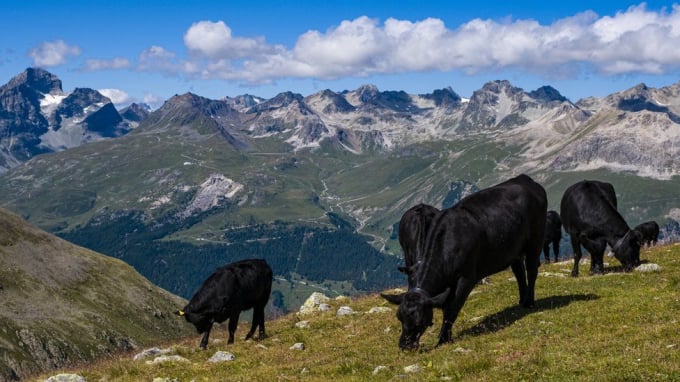November 27, 2025 | 22:41 GMT +7
November 27, 2025 | 22:41 GMT +7
Hotline: 0913.378.918
November 27, 2025 | 22:41 GMT +7
Hotline: 0913.378.918

Switzerland is a byword for pristine nature - but environmentalists say that image is flawed
One initiative proposes to end subsidies to farmers who use such pesticides, while another one would ban them altogether within 10 years.
Supporters point to worrying levels of pesticides in water, and damage to plants, animals and insects.
But Swiss farmers warn the proposals will put many of them out of business.
Pesticides are chemical or biological agents used to control pests.
Voting is also taking place on Sunday on other initiatives: anti-terrorism legislation, a new tax on fossil fuels and emergency Covid-19 funding.
Switzerland's system of direct democracy means all major decisions in the Alpine nation are taken at the ballot box.
Campaigners simply have to gather 100,000 signatures to ensure a nationwide vote.
If approved, the pesticide initiatives would go much further than the handful of towns and regions around the world that have already banned all synthetic pesticides.
It would also be of greater global significance than the ban imposed by Bhutan in 2013, as Switzerland is the home of the world's biggest pesticide manufacturer, Syngenta.
"I'm going to vote 'Yes' - we have to think about the future. Pesticides damage our health," Geneva resident Marie Lenbaus said.
Both proposals are widely backed by young urban voters.
But Swiss farmers say they are already complying with some of the strictest rules in Europe. They have seen their jobs and income decline over the last 20 years, and now they are furious, the BBC's Imogen Foulkes in Bern reports.
"You find a lot of people, especially in the cities, they have not even a clue what farming means," said Martin Haab, president of Zurich Farmers Association.
"So, if they have two tomatoes in their garden in front of the window, they think they understand farming and they know how to do organic farming," he said.
Switzerland's farming lobby is strong, and the latest polls show they might just have the edge, our correspondent says.
But she adds that even if voters reject a ban, this debate over pesticides has been so intense that it will not go away. Everyone agrees the country's pristine environment must be protected - they just do not agree on how.
(BBC)

(VAN) A new study reveals how the simultaneous effects of ocean acidification, salinity and loss of oxygen are making the world more fragile.

(VAN) Hopes are growing that the creation of the first 3D turkey gut model could be a turning point in the battle against the virulent blackhead disease.

(VAN) Tyson, America’s biggest meat supplier, plans to shutter one of its largest beef processing plants as the industry continues to struggle with low cattle supplies and political pressure from Washington.

(VAN) New FAO study shows how digital solutions are empowering farmers and fishers to prevent losses and build resilient agrifood systems.

(VAN) Brazil's COP30 presidency pushed through a compromise climate deal on Saturday that would boost finance for poor nations coping with global warming but that omitted any mention of the fossil fuels driving it.

(VAN) Poultry farmers in the UK have been warned that they could face one of the worst winters yet for bird flu.

(VAN) Prices of main-crop paddy have risen sharply, with jasmine rice hitting 16,100 baht per tonne — the highest level in years.